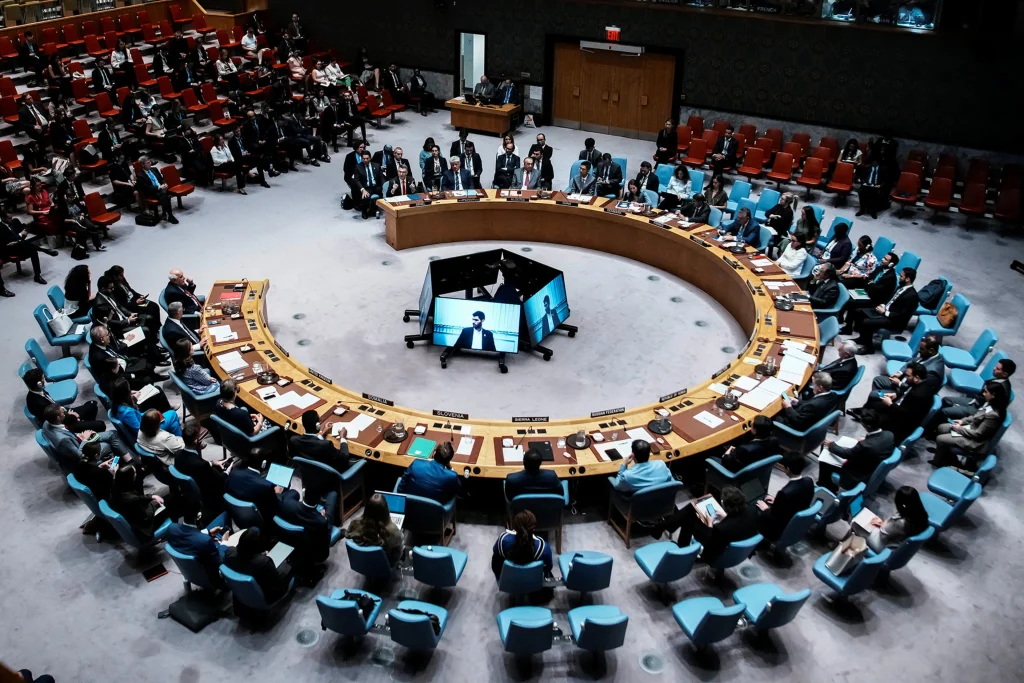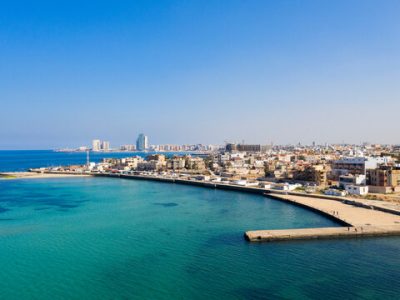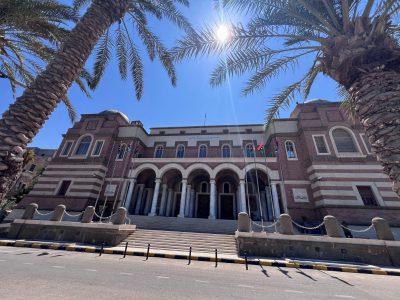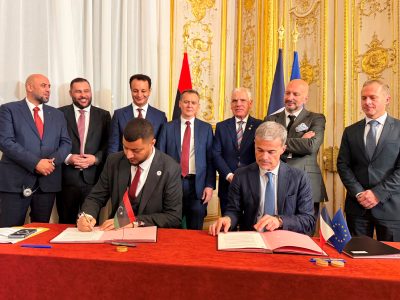Libya UN Security Council Candidacy 2028-2029: A Bid to Reclaim Global Influence
Libya’s candidacy for a non-permanent seat on the UN Security Council for the period 2028–2029 represents a diplomatic step with significant implications, expressing the country’s desire to regain its international standing after years of domestic political challenges. After a long period of attempts to rebuild state institutions and strengthen its domestic political process, Libya today seeks to be an effective voice in formulating international resolutions that contribute to preserving and strengthening international peace and security, and to represent the interests of the African continent and the Arab world in one of the most important institutions of the international system. This candidacy reflects not only a political ambition, but also a commitment to the responsibility of participating in maintaining international peace and security and consolidating Libya’s image as a country striving for stability, construction, and international cooperation.
However, the candidacy for this membership requires a number of important steps that Libya must take. Libya’s candidacy process for membership in the UN Security Council begins with an official national decision issued by the political leadership, expressing the country’s desire to obtain a non-permanent seat for a specific term, such as 2027–2028. As previously announced by the Ministry of Foreign Affairs and International Cooperation on its official pages, this usually takes place years before the election date to allow sufficient time to prepare for the diplomatic campaign. After that, Libya moves to the stage of regional coordination within the African Group at the United Nations, where it seeks and mobilizes to obtain the support of the African Union and the approval of its candidacy as a consensus candidate representing the continent, which is essential support that increases the chances of winning.
In the next stage, the Ministry of Foreign Affairs begins a broad diplomatic campaign that includes addressing the member states of the United Nations through notes verbales and bilateral and multilateral meetings, in addition to informational activities organized by the Libyan mission in New York to promote Libya’s program and priorities in supporting international peace and security. Voting for seats takes place in June (6) of the year prior to the start of the term, i.e. in 2026 for the 2027-2028 session, as Libya needs to obtain a two-thirds majority of the votes of the General Assembly through a secret ballot held in its corridors. If it wins, the term officially begins on January 1 (1) 2027 and continues for two years, during which Libya exercises its full role in discussing and voting on resolutions and chairing the Council at least once, which gives it an important opportunity to highlight its vision on regional and international issues, and to enhance its image as a positive actor that seeks To consolidate stability and international cooperation, and to leverage the seat to rebuild its standing on the global stage.
Libya’s candidacy is not merely a formal diplomatic measure; it is a real test to demonstrate to the world that Libya’s political will exists and to demonstrate its true standing in a world witnessing rapid transformations and changes. This ambition comes at a critical juncture, as Libya, after all it has been through, today its leaders are demonstrating a genuine and effective approach to the outside world, seeking to restore its voice within the international community and contribute to achieving global stability.
However, the path to winning the seat is not easy. Coordination and initiation of the campaign must come from the African Group, to which Libya belongs, within the corridors of the UN organization. This is the first, important, and decisive step, requiring more than classic diplomatic moves; it also requires demonstrating a genuine and clear commitment to the most important African issues. Therefore, Libya must expand its diplomatic efforts to gain the full support of the African Group and obtain similar consensus from other groups, such as the Asian and Latin American Groups.
Libya’s candidacy is not its first in history. Libya previously won a non-permanent seat in 1976 and 1977, during which it focused on important issues such as African liberation, Palestine, and the fight against apartheid in South Africa. The second term, in 2008 and 2009, marked a significant period in which Libya had regained its international standing after settling several contentious issues, particularly with the West, such as the Lockerbie affair. During this term, Libya sought to present itself as an active African state in issues related to regional security, particularly in Sudan and Somalia.
Ultimately, Libya’s candidacy for non-permanent membership in the Security Council represents a regional and international declaration of Libya’s return to the international stage in a new guise, at a time when the country has succeeded in achieving real stability after years of division. This candidacy represents a real opportunity to prove that Libya is capable of presenting a coherent and genuine vision that expresses its unified national will, and to be an effective element of balance and stability in its regional environment and a responsible partner alongside the international community in its positive efforts towards global issues. Success in this endeavor will not be measured by the number of speeches and meetings held, but rather by active diplomacy that embodies the aspirations of the Libyan people for peace and development, and serves the common interests of the world in preserving and maintaining international peace and security. This is an important historical moment to confirm that the new Libya is not waiting for its place in the world, but rather seeks to carve it out with merit.
The views expressed in this article are those of the author, and do not necessarily represent the editorial position of this publication.




